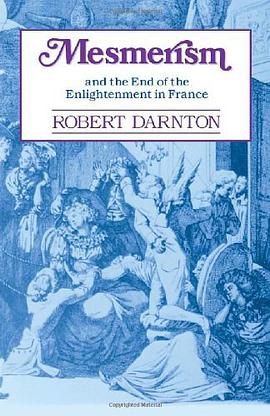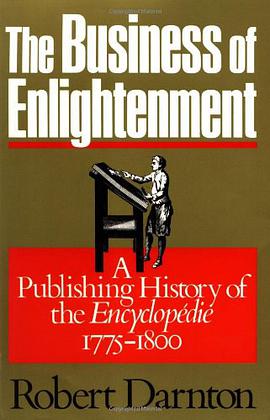Mesmerism and the End of the Enlightenment in France 豆瓣
作者:
Robert Darnton
Harvard University Press
1986
- 1
Review
Virginia Quarterly Review : A fascinating study of the effects that the theories of the notorious Viennese physician, Franz Mesmer, had upon social and political thinkers during the two decades preceding the French Revolution. This book is a skillful exploration of the various psychological factors that made mesmerism a widely accepted attitude[The book] will interest literary scholars as well as historians since mesmerism is examined as a phenomenon that bequeathed an attitude that found its expression in the writings of the preromantics and the romantics.
Isis : This is an excellent book and one of singular interest both to the historian of science and to the French historian.
Science : [An] excellent and exemplary study in the history of ideas. Based on a thorough study of manuscripts, pamphlets, and journals, learned in its broad setting and persuasive in its internal logic, supported by richly relevant quotations and reproductions of contemporary engravings, Mesmerism and the End of the Enlightenment in France provides a commendable model for those interested in the way 'true' and 'false' ideas interact and broadly influence behavior.
Virginia Quarterly Review : A fascinating study of the effects that the theories of the notorious Viennese physician, Franz Mesmer, had upon social and political thinkers during the two decades preceding the French Revolution. This book is a skillful exploration of the various psychological factors that made mesmerism a widely accepted attitude[The book] will interest literary scholars as well as historians since mesmerism is examined as a phenomenon that bequeathed an attitude that found its expression in the writings of the preromantics and the romantics.
Isis : This is an excellent book and one of singular interest both to the historian of science and to the French historian.
Science : [An] excellent and exemplary study in the history of ideas. Based on a thorough study of manuscripts, pamphlets, and journals, learned in its broad setting and persuasive in its internal logic, supported by richly relevant quotations and reproductions of contemporary engravings, Mesmerism and the End of the Enlightenment in France provides a commendable model for those interested in the way 'true' and 'false' ideas interact and broadly influence behavior.

